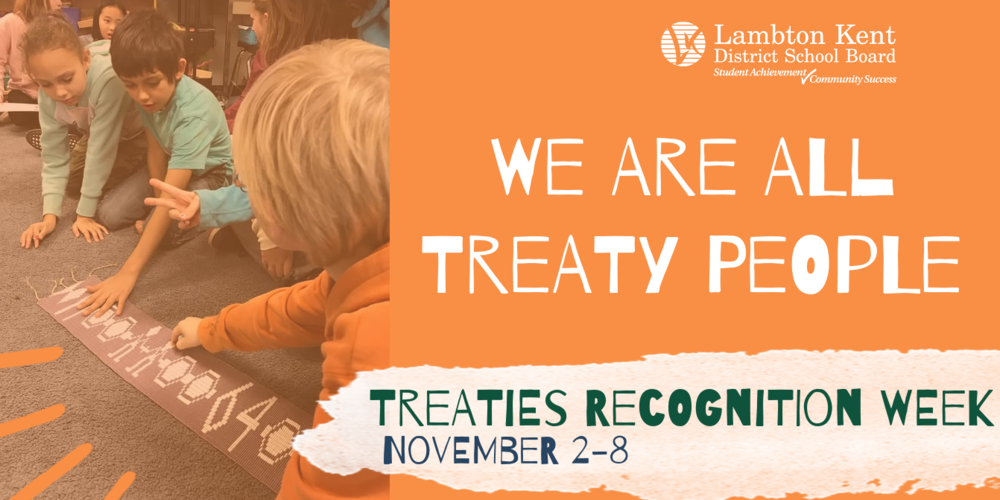This week, the Lambton Kent District School Board joins communities across Ontario in observing Treaties Recognition Week—a time to reflect on the enduring significance of treaties and our shared responsibilities as Treaty People.
Treaties are not relics of the past. They are living agreements, rooted in principles of mutual respect, understanding, and coexistence between Indigenous Nations and settler governments. Yet, the promises made have too often been broken—resulting in deep and lasting harm to Indigenous communities across Turtle Island.
At LKDSB, we recognize that reconciliation begins with truth. This week invites us to:
Learn about the history and intent of treaties
Listen to Indigenous voices
Confront colonial systems that continue to marginalize Indigenous rights and perspectives
Honouring Treaties Recognition Week means doing more than acknowledging the past—it means committing to change. It calls us to:
Explore the true history of the land we live on
Challenge the narratives that obscure treaty violations
Stand in solidarity with Indigenous peoples in their pursuit of justice, recognition, and cultural preservation
This is not a one-week commitment. It’s part of a lifelong journey of learning and unlearning—of building relationships grounded in accountability, respect, and shared responsibility.
10 Treaty Facts to Reflect On
The first Nation-to-Nation treaty was signed on August 4, 1701—the Great Peace of Montreal between New France and 40 First Nations.
Many early treaties are described by First Nations as Peace and Friendship Treaties.
Between 1760 and 1923, the British Crown signed 56 land treaties with Indigenous Peoples.
As oral tradition holders, many Indigenous signatories could not read the documents they signed, and language barriers often existed.
While Europeans recorded treaties on paper, First Nations used beaded wampum belts to record agreements.
No two treaties are the same—each reflects unique circumstances and relationships.
Early treaties were brief; modern treaties can span 1,000+ pages, including appendices.
Not all First Nations have signed treaties. In British Columbia, for example, 160 of 200 bands remain without treaties.
Ontario is covered by 46 treaties and other agreements signed between 1781 and 1930.
Call to Action #94 from the Truth and Reconciliation Commission recommends adjusting the Oath of Citizenship to include recognition of treaties.
Source: Indigenous Corporate Training Inc.
Together, we can help create a future where treaties are not only remembered, but upheld. Where Indigenous rights are honoured. And where education becomes a powerful tool for truth and reconciliation.

